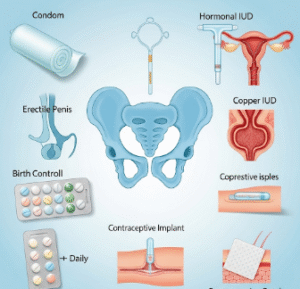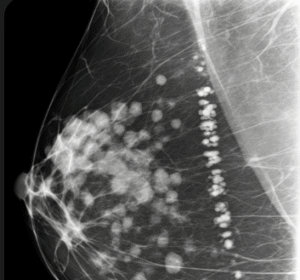Overview
Losing interest, medically referred to as anhedonia, is a reduced ability to experience pleasure or a loss of interest in activities that were previously enjoyable. It is commonly associated with depression, anxiety, chronic stress, or neurological conditions. Individuals experiencing this symptom may notice changes in hobbies, social interactions, work performance, and relationships, which can significantly impact overall quality of life.
In Korea, mental health clinics, psychiatric hospitals, and counseling centers offer comprehensive care for individuals experiencing loss of interest. Treatment focuses on identifying underlying causes, managing psychological and medical conditions, and restoring daily functioning.
Key Facts
- ➔ Loss of interest is a hallmark symptom of depression and other mood disorders.
- ➔ It can affect personal, social, and professional life, often leading to isolation.
- ➔ Causes include psychological disorders, chronic illness, medications, or lifestyle factors.
- ➔ Early recognition and intervention can prevent long-term emotional and functional impairment.
- ➔ In Korea, integrated care involving psychiatrists, psychologists, and therapists is available for effective management.
What is Losing Interest?
Losing interest is defined as a persistent reduction in the ability to enjoy or engage in previously pleasurable activities:
- ➔ Anhedonia: Clinical term for inability to feel pleasure
- ➔ Situational loss of interest: Temporary decrease due to stress, fatigue, or external circumstances
- ➔ Associated behavioral changes: Reduced participation in hobbies, decreased social interaction, and diminished motivation
- ➔ Clinical significance: Persistent loss of interest may indicate depression, anxiety disorders, chronic medical illness, or neurological conditions
Understanding the type and duration of interest loss is essential for accurate diagnosis and treatment planning.
What Symptoms Are Related To
Loss of interest may be accompanied by:
- ➔ Persistent sadness or low mood
- ➔ Fatigue or low energy
- ➔ Difficulty concentrating or making decisions
- ➔ Sleep disturbances: Insomnia or oversleeping
- ➔ Changes in appetite or weight
- ➔ Feelings of hopelessness or worthlessness
- ➔ Social withdrawal or avoidance of previously enjoyed activities
These symptoms help clinicians determine whether the loss of interest is part of a depressive disorder, stress response, or other medical conditions.
What Causes / Possible Causes
Loss of interest can result from psychological, neurological, medical, and lifestyle factors:
- ➔ Depression: Major depressive disorder or dysthymia
- ➔ Anxiety disorders: Generalized anxiety disorder, panic disorder, or chronic stress
- ➔ Chronic medical conditions: Diabetes, cardiovascular disease, cancer, or chronic pain
- ➔ Neurological disorders: Parkinson’s disease, Alzheimer’s disease, or stroke
- ➔ Medications: Certain antidepressants, antipsychotics, or sedatives may contribute
- ➔ Lifestyle factors: Poor sleep, sedentary lifestyle, inadequate social support, or burnout
- ➔ Substance use: Alcohol or drug abuse affecting mood and motivation
Identifying the root cause is crucial for effective intervention and recovery.
When Should I See My Doctor
Seek professional help if:
- ➔ Loss of interest persists for more than two weeks and interferes with daily life
- ➔ Accompanied by persistent sadness, hopelessness, or thoughts of self-harm
- ➔ Interferes with work, school, or personal relationships
- ➔ Associated with sleep disturbances, appetite changes, or significant fatigue
- ➔ Occurs alongside chronic medical conditions that may exacerbate mood changes
Early evaluation helps address underlying causes, prevent worsening of symptoms, and restore daily functioning.
Care and Treatment
Treatment for loss of interest depends on underlying causes:
- ➔ Psychotherapy: Cognitive-behavioral therapy (CBT), interpersonal therapy, or counseling
- ➔ Medication: Antidepressants or anxiolytics if clinically indicated
- ➔ Lifestyle modifications: Regular exercise, healthy diet, structured routines, and social engagement
- ➔ Sleep hygiene: Addressing insomnia or irregular sleep patterns
- ➔ Stress management: Mindfulness, relaxation techniques, or meditation
- ➔ Support networks: Family, friends, or support groups for emotional reinforcement
- ➔ Monitoring progress: Regular follow-up with mental health professionals to track improvement
With timely intervention, many individuals regain interest, motivation, and quality of life.
Treatment Options in Korea
Korean mental health facilities provide comprehensive care for individuals experiencing loss of interest:
- ➔ Diagnostic evaluations: Psychological assessments, depression/anxiety scales, and medical evaluations
- ➔ Specialist consultations: Psychiatrists, psychologists, and counselors
- ➔ Medical therapy: Prescription medications for depression or anxiety as appropriate
- ➔ Therapeutic programs: CBT, group therapy, mindfulness-based stress reduction, and occupational therapy
- ➔ Lifestyle and wellness guidance: Exercise programs, nutrition counseling, and social engagement strategies
- ➔ Multidisciplinary approach: Coordinated care for individuals with coexisting medical, neurological, or psychological conditions
- ➔ Leading hospitals: Seoul National University Hospital, Asan Medical Center, and Samsung Medical Center offer state-of-the-art mental health services, follow-up, and rehabilitation programs
In Summary: Losing interest is a common but impactful symptom that may indicate depression, chronic illness, or stress-related conditions. Timely care in Korea can identify underlying causes, provide effective treatment, and help individuals regain motivation and engagement in daily life.
- ➔ Key Takeaway: Persistent loss of interest should not be ignored; professional assessment is essential.
- ➔ Action Point: Consult mental health specialists for diagnosis, therapy, medication management, and lifestyle guidance.













